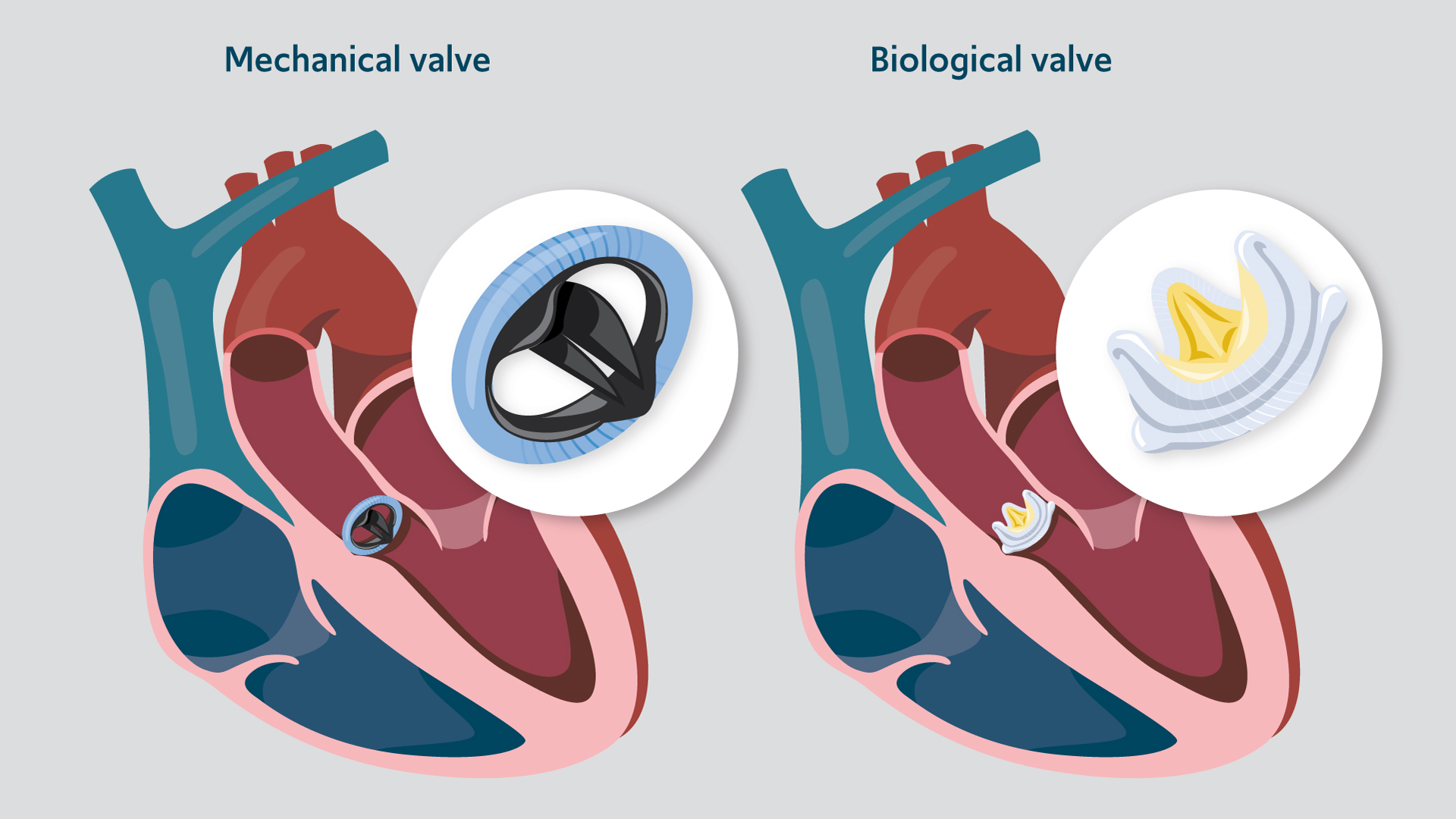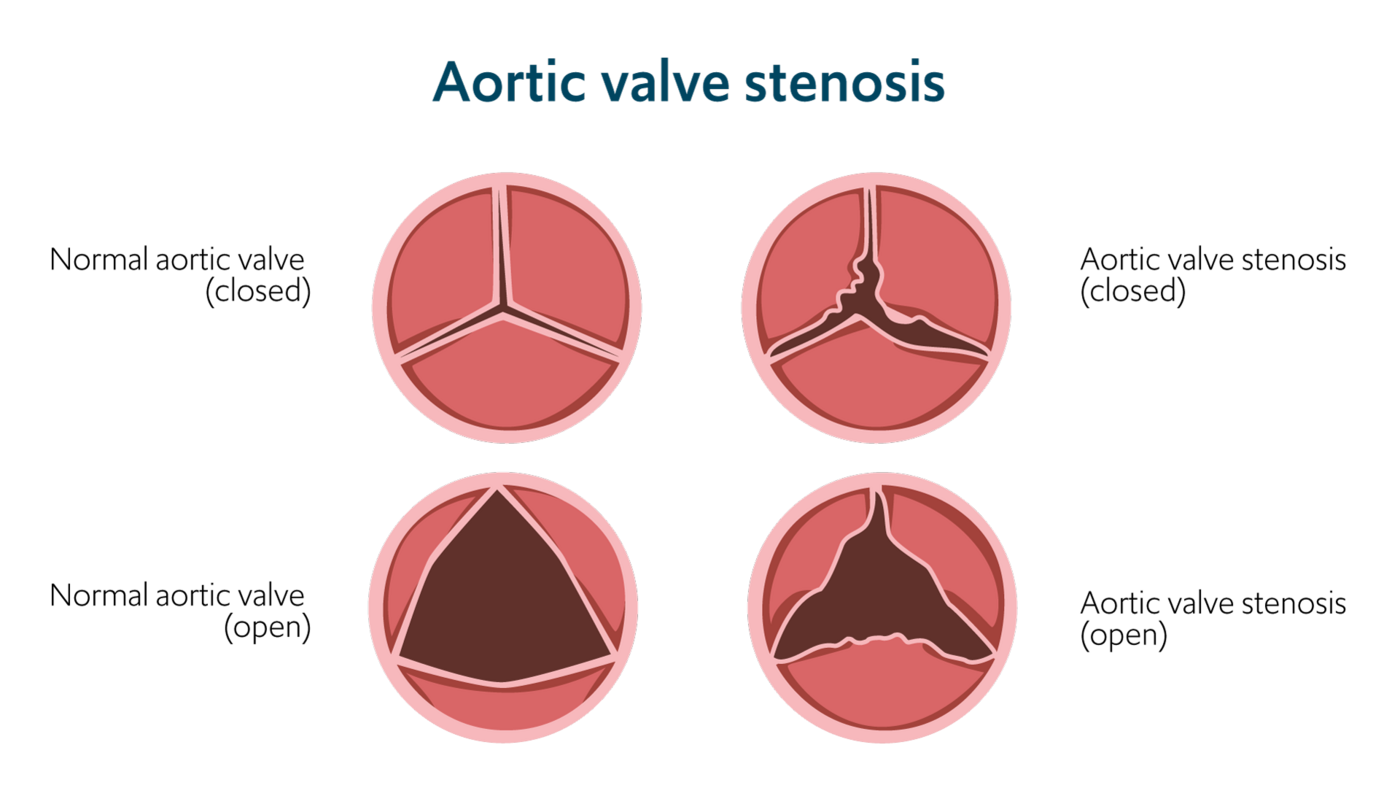Aortic valve replacement can treat a faulty aortic valve, reduce unpleasant symptoms, improve your life expectancy and increase your quality of life.
Medications can’t cure aortic valve problems, so your specialist may recommend valve replacement if you’re at risk of heart damage and serious complications from your valve disease but are otherwise fit and well for surgery.
What is aortic valve replacement?
Aortic valve replacement is open-heart surgery that treats disease or damage to the heart’s aortic valve. A cardiothoracic surgeon removes the faulty valve and replaces it with a new prosthetic device made from animal tissue or synthetic materials.
“Aortic valve replacement is the definitive treatment for aortic valve disease. After you recover from surgery, you may find that you feel much better than before. However, deciding to have major open-heart surgery can be difficult,” explains our consultant cardiac surgeon, Mr Sunil Bhudia.
Your recuperation can be long and challenging; this blog explores what to expect from life after aortic valve replacement.

An illustration showing the two types of replacement valve available, mechanical and biological.
What can aortic valve replacement treat?
Our specialist may recommend surgical aortic valve replacement if your valve problem is causing uncomfortable symptoms which restrict your daily life or if the faulty valve may damage your heart or cause dangerous complications.
Aortic valve replacement treats the two types of aortic valve disease:
- aortic stenosis: The aortic valve gets stiff, thick and narrowed, obstructing blood flow from the heart to the body
- aortic regurgitation: Also known as aortic insufficiency, in aortic regurgitation, the aortic valve is leaky and lets blood flow back into the heart’s left lower chamber

Aortic valve stenosis causes the valve to become narrowed, reducing blood flow through the heart.
Aortic valve replacement recovery
“Your body will need time to recover from surgical aortic valve replacement. The speed of your recovery will depend on your health, age and whether you develop any complications,” explains Mr Bhudia.
“You will spend the first 24-48 hours following surgery in the ICU. You will usually be sedated and asleep for several hours or overnight, depending on your needs. The professional team will monitor your heart, lung and kidney function.”
In the ICU, you will have a tube in your throat attached to a ventilator. The ventilator will do your breathing until you can breathe independently. At this time, you won’t be able to eat, drink or speak. You will have a drip for fluids and painkillers to maintain your comfort. When you can breathe alone, the team will give you an oxygen mask to wear.
When you are stable and breathing independently, you will move to a specialist surgical ward. You’re likely to still have many tubes, drains and monitors attached to your body. You are likely to have:
- oxygen mask
- heart monitor
- blood pressure monitor
- chest drains to remove fluid
- wires connected to a pacemaker to control your heart’s rhythm
- fluid drip
- a catheter to empty your bladder
Most people need to stay in hospital for a week; during that time, the team will check your recovery, help you get up and out of bed, and support you to eat and drink.
A specialist physiotherapist or member of the cardiac rehabilitation team will give you individual guidance about rehabilitation, safe activity, and how to gradually return to your normal daily activities.
Life after aortic valve replacement surgery
“Aortic valve replacement is major surgery, and your body will need time to recover. The breastbone can be painful and takes around eight weeks to heal, but you may need three months to recover fully,” explains Mr Bhudia.
- rest and recovery: You may struggle to get around and care for yourself when you first get home after valve replacement surgery. Some people arrange to spend time in a convalescent home to get a little extra support
- anticoagulants after aortic valve replacement: The surgeon will replace your valve with a prosthetic device made of synthetic materials or animal tissue. Synthetic or mechanical valves are linked with blood clot formation, which can be dangerous. If you have a mechanical prosthetic valve will need to take blood-thinning medication for life. Biological valves don’t cause thrombosis, so long-term anticoagulants aren’t usually necessary
- sound-effects: A mechanical valve makes a regular clicking sound. It can take a little time to get used to the new noise, but most people don’t notice it after a while
Back to work: If you have a sedentary job, you may be able to return to work between six and eight weeks after surgery. If your job is physically demanding, you should wait three months. Ask your surgeon for advice if you’re not sure. - driving: You can drive after valve replacement surgery, but you should wait at least six weeks. Your surgeon will give you individual guidance on when to get behind the wheel, but in general, it’s not safe until you can safely perform an emergency stop
- sex after valve replacement surgery: It’s safe to have sex six to eight weeks after surgery. Try to take it gently and avoid any pressure on your breastbone
- exercise and activity: Your physio or cardiac rehabilitation specialist may give you a graded activity programme. You should avoid strenuous exercise and any heavy lifting for three months to allow your wounds to heal
- protection against endocarditis: Like your faulty aortic valve, your new valve is vulnerable to endocarditis (a condition in which the tissues lining the inside of the heart and the heart valves become inflamed). Make sure you have regular dental check-ups, practise careful dental hygiene, and take protective antibiotics if you have a dental procedure
Does aortic valve replacement restrict your lifestyle?
After the initial recovery period, most people find that valve replacement surgery improves their health and quality of life. Without symptoms, you will probably feel better than you did before surgery.
How long does an aortic replacement valve last?
“The longevity of your replacement valve will depend on the material. Mechanical valves are made of synthetic materials and will last longer. For this reason, they may be better for younger people. They don’t usually wear out and typically last for more than 20 years,” explains Mr Bhudia.
Biological or bioprosthetic valves are made of animal tissue which wears out more quickly, making them better suited to older people. In research, most people (94%) had a functioning valve ten years after surgery. After 20 years, more valves had failed, with around 48% valve deterioration.
For more information or to book an appointment, please contact our customer care team.
Related content
-
Aortic stenosis
Aortic stenosis is a disease that affects the main outlet valve of the heart and is the third most common cardiovascular disease.
-
Heart valve repair or replacement
Heart valve surgery can repair or replace a damaged valve.
-
Valvular heart disease
Heart valve disease occurs when the valves of the heart become diseased or damaged.
